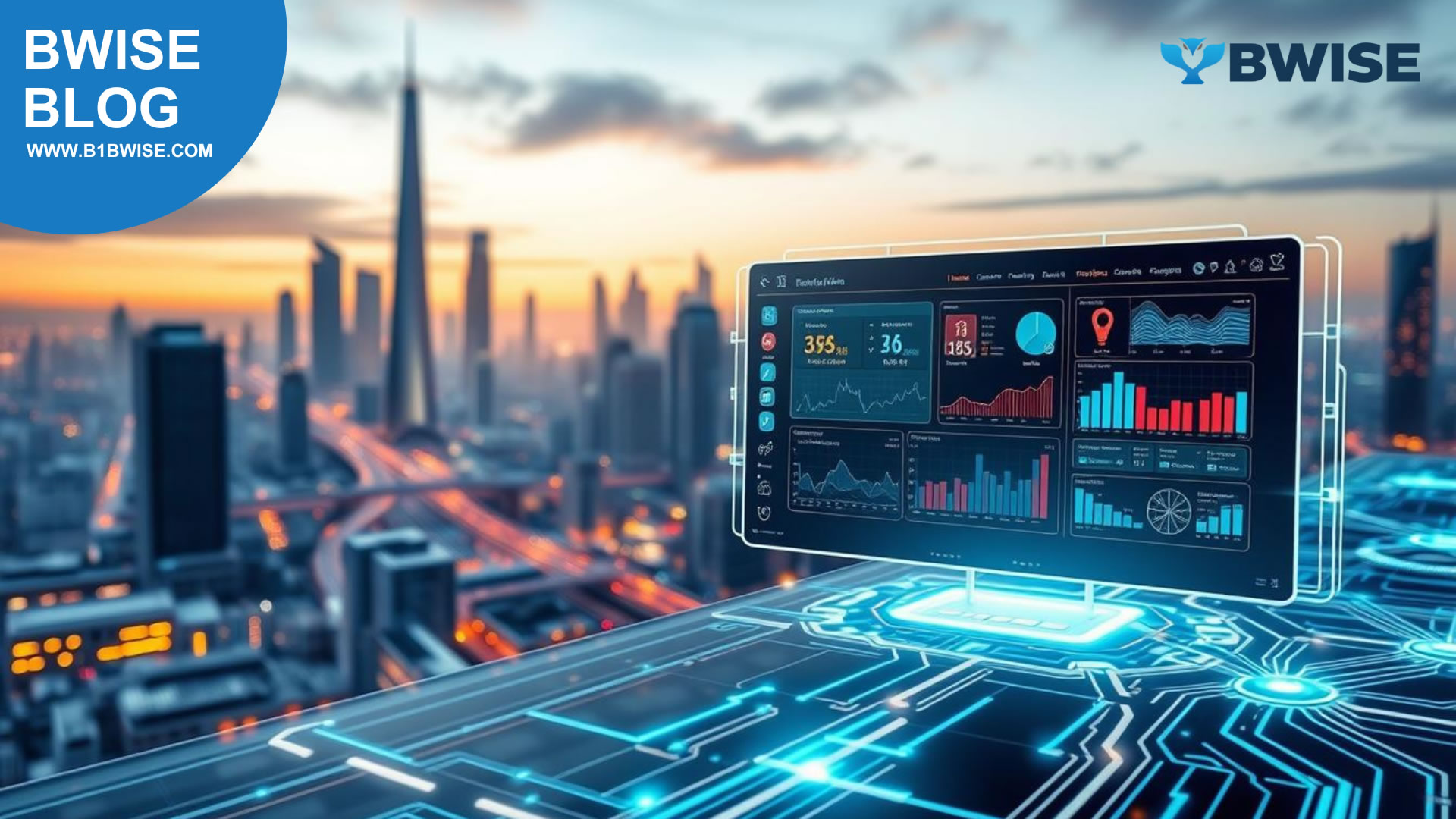As businesses look to the future, having a clear enterprise resource planning strategy is crucial for growth and innovation. A well-planned ERP vision guides the implementation and utilization of ERP systems, ensuring they meet the organization’s needs and drive future success.

In today’s fast-paced business landscape, companies must be agile and responsive to changing market conditions. A clear ERP vision enables businesses to streamline processes, improve efficiency, and make informed decisions.
Key Takeaways
- A clear ERP vision is essential for business growth and innovation.
- A well-planned enterprise resource planning strategy drives future success.
- ERP systems should be implemented to meet the organization’s specific needs.
- A clear ERP vision enables businesses to streamline processes and improve efficiency.
- Informed decision-making is a key benefit of a well-planned ERP vision.
The Evolving Landscape of Enterprise Resource Planning
The world of ERP is changing rapidly, influenced by technological advancements and shifting business needs. Recent studies indicate a significant shift towards cloud-based ERP software solutions, driven by the need for greater flexibility and scalability.
ERP implementation has become more sophisticated, incorporating advanced technologies such as artificial intelligence and the Internet of Things (IoT). This evolution enables businesses to streamline their operations, improve decision-making, and enhance customer experiences.
The rise of mobile technology has also played a crucial role in shaping the future of ERP systems. With mobile-enabled ERP, businesses can access critical information and perform tasks on-the-go, improving responsiveness and productivity.
As ERP continues to evolve, it’s clear that businesses must adapt their ERP strategies to remain competitive. This involves not only adopting the latest technologies but also ensuring that their ERP systems are aligned with their overall business goals.
Developing a Comprehensive ERP Vision for Future Success
As we look towards 2025 and beyond, developing a comprehensive ERP vision becomes essential for future success. This involves a thorough understanding of the organization’s current state and future aspirations.
To create an effective ERP vision, businesses must first identify their core needs and objectives. This includes assessing current systems, pinpointing inefficiencies, and determining areas for improvement. By doing so, organizations can align their ERP strategy with their overall business goals.
ERP consulting services play a vital role in this process. Experienced consultants can provide valuable insights and guidance, helping businesses navigate the complexities of ERP system integration. They can assist in evaluating existing infrastructure, recommending necessary upgrades, and ensuring a seamless transition to new systems.
A successful ERP vision also involves planning for future growth and scalability. This means selecting systems that are flexible and adaptable, capable of evolving with the business. By doing so, organizations can ensure their ERP solution remains relevant and effective in the long term.
By combining a clear understanding of business needs with expert ERP consulting services and a well-planned integration strategy, businesses can develop a comprehensive ERP vision that drives future success.
Core Components of a Successful ERP Vision for 2025 and Beyond
As we look towards 2025, crafting a successful ERP vision requires a deep understanding of its core components. A forward-thinking ERP strategy is crucial for businesses aiming to stay competitive in a rapidly evolving landscape.
One of the key elements is the adoption of cloud-based ERP solutions, which offer scalability, flexibility, and cost-effectiveness. By leveraging cloud technology, businesses can enhance their operational efficiency and reduce IT burdens.
Mobile-First Design Principles, Intuitive Interfaces for Diverse User Groups
Implementing mobile-first design principles is vital for modern ERP systems. This approach ensures that the system is accessible and usable across various devices, enhancing user experience. Intuitive interfaces cater to diverse user groups, making it easier for employees to navigate and utilize the system effectively.
Case studies have shown that ERP systems with mobile-first design and intuitive interfaces experience higher adoption rates and greater overall satisfaction among users. These ERP benefits translate into improved productivity and better decision-making capabilities.
By focusing on these core components, businesses can create a robust ERP vision that drives future success. This involves not only adopting the right technology but also ensuring that the system is user-friendly and accessible to all stakeholders.

Technology Trends Shaping the Future of ERP Systems
Emerging technology trends are revolutionizing the world of ERP, enabling businesses to operate more efficiently and effectively. The shift towards cloud-based ERP solutions is gaining momentum, driven by the need for greater flexibility and scalability.
One of the key decisions businesses face when adopting cloud ERP is choosing between SaaS (Software as a Service) and hybrid cloud approaches.
SaaS vs. Hybrid Cloud Approaches
SaaS ERP solutions offer a cost-effective, streamlined implementation process, with the vendor handling maintenance and updates. In contrast, hybrid cloud models provide a more customized solution, integrating on-premise and cloud-based elements to meet specific business needs.
Security Considerations for Cloud ERP
become paramount. Recent security threats to ERP systems have highlighted the importance of robust security measures. Mitigation strategies include implementing multi-factor authentication, encryption, and regular security audits to protect sensitive data.
ERP security is a top concern for organizations, with the potential for significant financial and reputational losses in the event of a breach. By prioritizing ERP security and staying informed about emerging threats, businesses can ensure the integrity of their ERP software solutions.
Cloud-based ERP solutions offer numerous benefits, including enhanced collaboration, improved data analytics, and increased mobility. As the ERP landscape continues to evolve, businesses must stay abreast of the latest technology trends and advancements in cloud-based ERP solutions to remain competitive.
Implementation and Integration Strategies for Next-Generation ERP
Implementing a next-generation ERP system requires a strategic approach to ensure seamless integration and optimal performance. Effective implementation begins with thorough planning, where businesses must assess their current systems, identify future needs, and define clear objectives for the ERP system.
One of the significant challenges in ERP implementation is data migration. Businesses must ensure that their data is accurately transferred to the new system without disrupting ongoing operations. This can be achieved by conducting thorough data audits and employing robust data migration tools. For instance, a manufacturing company successfully migrated its data by using a phased approach, ensuring minimal downtime.
ERP consulting services play a crucial role in the implementation process. Experienced consultants can provide valuable insights into best practices, help navigate potential pitfalls, and ensure that the ERP system is tailored to the business’s specific needs. They can also facilitate employee training, which is critical for the successful adoption of the new system.
Integration is another key aspect of ERP implementation. Businesses must ensure their ERP system integrates smoothly with existing software and hardware. This can be achieved by adopting standardized integration protocols and leveraging middleware solutions. For example, a retail company integrated its ERP system with its e-commerce platform using APIs, resulting in streamlined operations and improved data consistency.
In conclusion, the successful implementation and integration of next-generation ERP systems require careful planning, the right expertise, and a focus on integration. By leveraging ERP consulting services and adopting best practices, businesses can overcome common challenges and achieve optimal performance from their ERP systems.
Training and Optimization for Maximum ERP Value
The success of an ERP system depends on thorough training and continuous optimization. Effective ERP training is crucial for ensuring that users can leverage the system’s capabilities to their fullest potential. Studies have shown that proper training can increase user adoption rates by up to 30%.
To maximize the benefits of ERP, organizations should implement comprehensive training programs that cover all aspects of the system. This includes initial training sessions, ongoing support, and regular updates on new features and functionalities.
In addition to training, ERP optimization strategies play a vital role in ensuring the long-term success of the system. This involves regularly reviewing and refining business processes, updating system configurations as needed, and leveraging analytics to inform decision-making.
By combining effective training with ongoing optimization, organizations can unlock the full ERP benefits and achieve significant returns on their investment. This proactive approach enables businesses to stay competitive, improve operational efficiency, and drive growth.
Conclusion: Positioning Your Business for Success with a Forward-Looking ERP Vision
A well-planned ERP vision is crucial for businesses aiming to stay competitive in a rapidly evolving landscape. By understanding the core components of a successful ERP vision and leveraging technology trends, organizations can drive growth and innovation.
Enterprise Resource Planning systems are no longer just about managing resources; they’re about enabling businesses to adapt, innovate, and thrive. A forward-looking ERP vision helps companies stay ahead of the curve, capitalize on emerging opportunities, and navigate complex challenges.
As you move forward, prioritize developing a comprehensive ERP vision that aligns with your business goals. This proactive approach will empower your organization to maximize the value of its ERP investment, drive efficiency, and foster long-term success.
